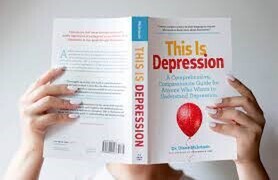World Mental Health Day
Mental health is a crucial aspect of overall well-being, yet it is often overlooked and stigmatised. World Mental Health Day, observed annually on October 10th, aims to raise awareness about mental health and promote advocacy against the social stigma surrounding mental illness. This year's theme is "Mental Health in an Unequal World."
Mental health refers to a person's emotional, psychological, and social well-being. It affects how we think, feel, and behave and is crucial to our daily functioning. Good mental health enables us to cope with stress, maintain positive relationships, and make healthy decisions.
Unfortunately, mental health issues are prevalent worldwide, with an estimated 1 in 4 people experiencing some form of mental illness in their lifetime. Mental health problems can range from mild anxiety to severe depression, and they can be caused by a combination of biological, environmental, and psychological factors.
The COVID-19 pandemic has exacerbated mental health issues, with increased stress, anxiety, and isolation affecting people of all ages. It has also highlighted the disparities in access to mental health care and resources, particularly in marginalised communities.
To promote good mental health, it is important to prioritise self-care, seek support, and reduce the stigma surrounding mental illness. Here are some tips to improve mental health:
Take care of your physical health: Eating a balanced diet, getting enough sleep, and exercising regularly can improve your mental health.
Practice mindfulness: Mindfulness techniques such as meditation and deep breathing can help reduce stress and improve your mental well-being.
Seek support: Talking to a trusted friend or family member, joining a support group, or seeking professional help can provide a valuable source of support.
Engage in activities that bring joy: Engaging in hobbies and activities that you enjoy can help reduce stress and improve your mood.
Reduce social media use: social media can exacerbate feelings of anxiety and depression. Limiting social media use and taking breaks from technology can be beneficial for mental health.
On World Mental Health Day, it is important to raise awareness about mental health and advocate for better access to mental health care and resources. We need to reduce the stigma surrounding mental illness and promote a more inclusive and supportive society.
In conclusion, mental health is a crucial aspect of overall well-being that affects every aspect of our lives. It is important to prioritise self-care, seek support, and reduce the stigma surrounding mental illness. World Mental Health Day provides an opportunity to raise awareness and advocate for better mental health care and resources for all. Remember, good mental health is not a luxury, it is a necessity for a happy and fulfilling life.
Tips to support someone struggling with their mental health
Listen without judgment: When someone is struggling with their mental health, it is important to listen to them without judgment. Allow them to share their thoughts and feelings without interruption, criticism, or blame. Show empathy and validate their feelings by saying things like "I can see that you are going through a tough time."
Offer support and encouragement: Let the person know that they are not alone and that you are there to support them. Offer encouragement by reminding them of their strengths and the progress they have made so far. You can also suggest resources such as therapy, support groups, or other mental health services.
Educate yourself: Educating yourself about mental health and the specific issues that your loved one is facing can help you understand their experiences better. It can also help you provide more effective support and avoid common misconceptions or stigmas.
Be patient and understanding: Recovery from mental health issues can be a long and difficult process, so it is important to be patient and understanding. Avoid pressuring the person to "just get over it" or to "cheer up." Instead, focus on offering consistent support and understanding as they work through their struggles.
Take care of yourself: Supporting someone who is struggling with their mental health can be emotionally taxing. It is important to take care of your own mental health by seeking support from your own network, practicing self-care, and setting boundaries when needed. Remember, you cannot pour from an empty cup, so taking care of yourself is essential to providing effective support to others.
Fun fact
Did you know that the term "butterflies in your stomach" is not just a figure of speech? The feeling of nervousness or excitement that we often describe as "butterflies" is actually a physical response in our gut. The gut and the brain are connected by the enteric nervous system, which contains over 100 million nerve cells. This connection is why our emotions can have a physical effect on our digestive system, and why a healthy gut is essential for good mental health
Book suggestion
This Is Depression" by Dr. Diane McIntosh
In "This is Depression", psychiatrist Dr. Diane McIntosh shares what she’s experienced in the 20 years she’s been working with patients who have been diagnosed with depression. She takes readers through common causes of depression, the diagnosis process for depression, and the many possible treatment options an individual may be prescribed.
Her take on the topic is not only founded in research, but her use of stories shared by patients also provides real-life examples for anyone experiencing depression in their own life. This book is a necessary guide for anyone who faces depression—whether their own or a loved one’s—in their life.
Smiling and how it can change our perception
Smiling is often associated with positive emotions, but did you know that it can also change our perception of negativity? Smiling can have a profound effect on our mental and emotional well-being, and it is a simple and effective tool that we can use to improve our mood and outlook on life.
Studies have shown that when we smile, our brain releases endorphins, serotonin, and dopamine, which are hormones that are associated with happiness and pleasure. These chemicals not only make us feel good, but they can also reduce stress and anxiety, boost our immune system, and improve our overall health.
Furthermore, smiling can help us perceive negative situations in a more positive light. When we smile, we are more likely to focus on the positive aspects of a situation and less likely to dwell on the negative. This can help us reframe our thoughts and emotions, making it easier to cope with difficult situations and challenges.
In fact, studies have shown that even fake smiles can have a positive effect on our mood and outlook. The act of smiling, whether genuine or not, sends a signal to our brain that we are happy and content, which can help us feel better, even in the midst of negativity or stress.
So, the next time you are feeling down or facing a negative situation, try smiling. It may feel difficult at first, but even a small smile can have a powerful effect on your mood and perspective. Here are some tips for incorporating more smiling into your daily life:
Practice smiling in front of a mirror: Take a few minutes each day to practice smiling in front of a mirror. Notice how your facial expressions change and how your mood shifts as you smile.
Smile at others: Make a conscious effort to smile at others, whether it's a stranger on the street or a colleague at work. Smiling is contagious, and your smile may brighten someone else's day.
Find things to smile about: Look for the positive aspects of your life and focus on them. Whether it's a beautiful sunset or a kind gesture from a friend, finding things to smile about can help improve your overall well-being.
In conclusion, smiling is a simple and effective tool that we can use to improve our mood and perception of negativity. Whether we are facing difficult situations or just feeling down, smiling can help us cope and find a more positive outlook. So, go ahead and smile – it's good for you!




